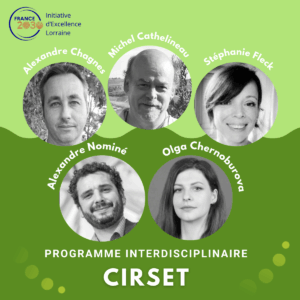Temps de lecture : 7 minutes
Interview du Professor@Lorraine João F. MANO, Department of Chemistry, CICECO—Aveiro Institute of Materials, University of Aveiro, Aveiro, Portugal, Professor@Lorraine, University of Lorraine, Institut Jean Lamour, Nancy, France [English version below]
Où travaillez-vous quand vous n’êtes pas en Lorraine et pouvez-vous expliquer la nature de vos travaux à un public de non spécialistes ?
Je développe mes travaux principaux au département de chimie à l’université d’Aveiro (Portugal), au sein de l’Institut de Matériaux d’Aveiro – CICECO, la plus grosse infrastructure de recherche dédiée aux sciences des matériaux et à l’ingénierie au Portugal. Je m’intéresse à la combinaison de matériaux biocompatibles avec les cellules pour produire des tissus humains en laboratoire. Le design correct de telles structures et les conditions de culture adéquates permettraient de produire des tissus fonctionnels qui pourraient être greffés aux patients suivant un traitement de médecine régénérative. Cela pourrait permettre de rétablir la structure et les propriétés de tissus malades, endommagés ou perdus. C’est un domaine multidisciplinaire et fascinant dans lequel travailler et qui nous permettra peut-être à l’avenir de proposer des solutions innovantes à des conditions actuellement incurables.
Comment avez-vous entendu parler du programme Professor@Lorraine de l’initiative Lorraine Université d’Excellence et pour quelle raison avez-vous souhaité vous y engager ?
Cela fait 4 ans que je collabore avec des groupes de recherche à l’Université de Lorraine, en particulier avec le Prof. Franck Cleymand de l’Institut Jean Lamour (IJL). J’ai eu la chance d’obtenir un poste de « Chercheur d’avenir » (support financier de la région/FEDER) ce qui a permis d’amplifier le nombre d’interactions du même genre. J’ai également eu le privilège d’enseigner à l’Ecole Nationale Supérieure des Mines de Nancy un cours en lien avec le Biomimétisme. C’est à cette période qu’on m’a proposé d’obtenir le statut de Professor@Lorraine, que j’ai immédiatement accepté, compte tenu du prestige du titre et qu’il me permettait de maintenir mes liens avec l’institution. C’est un instrument d’excellence unique qui nous permet de participer à la vitalité de l’Université de Lorraine, de faire de la recherche novatrice et développer des projets éducatifs et transverses.
Quels ont été les fruits ou sont les résultats espérés de votre collaboration avec F. Cleymand au sein de LUE ?
Le statut de Professeur@Lorraine est une grande responsabilité mais offre des opportunités exceptionnelles de rassembler et développer en interne des compétences nouvelles à l’université. Par exemple, ce poste m’a permis de soumettre des projets de recherche à l’UL, avec des collèques de consortiums divers et même d’autres universités. Nous croyons fermement que ces actions pourraient aboutir en la création d’une nouvelle discipline à l’UL, à la croisée de la bio-ingénierie et des matières organiques dites « molles », pour complémenter les compétences excellentes existant déjà en sciences des matériaux et en ingénierie, en particulier à l’IJL. Nous avons déjà eu des résultats très intéressants grâce à ces coopérations : nous sommes par exemple en train de développer des membranes qui serviront de patches de support pour la régénération de tissus cardiaques, utilisable dans les cas tels qu’un infarctus du myocarde. Nous développons également l’utilisation de technologies d’impression 3D pour réaliser des tissus complexes qui combineraient biomatériaux et cellules dès leur conception. Des évènements internationaux et de nouveaux projets éducatifs sont déjà prévus dans le champ des matériaux à utilisation médicale, participant grandement au rayonnement de l’UL et de sa formation avancée dans ces domaines.
Quels sont vos projets pour la suite ?
Sur le long terme, je souhaite que les efforts déployés en ce moment culminent en une masse critique de savoir-faire à l’Université de Lorraine dans le domaine des biomatériaux avancés et de l’ingénierie tissulaire. Cela comprendrait des infrastructures et équipements dédiés, des chercheurs, des partenariats nationaux et internationaux, la création d’un savoir transmissible et de projets éducatifs. Cette entreprise nécessitera un soutien financier continu des agences nationales et européennes et les efforts de multiples groupes au sein de l’université.
Le Professeur Mano animera un séminaire inaugural le 18/12/18 à 15:00 à l’Amphithéâtre 100 du campus ARTEM – factuel.univ-lorraine.fr/node/9984
[English version]
Where do you work when you’re not in Lorraine and could you explain the nature of your work for a non-specialist public?
I’m developing my major work at the Department of Chemistry of the University of Aveiro (Portugal), in CICECO – Aveiro Institute of Materials, the biggest Research Unit devoted to Materials Science and Engineering in Portugal. I’m interested in combining biocompatible materials with cells to produce human tissues in the laboratory. The right design of such hybrid structures and the adequate culturing conditions would allow to produce functional tissues that could be implanted into patients in regenerative medicine strategies. This could permit to reestablish the structure and the function of diseased, damaged or lost tissues. This is a truly multidisciplinary and fascinating field to work that could allow us in the future to propose completely new solutions of currently incurable clinical conditions.
How did you hear about the Professor@Lorraine program by the Lorraine Université d’Excellence initiative and what made you want to participate?
I’ve been collaborating with research groups at the Université de Lorraine for the last 4 years, in particular with Prof. Franck Cleymand at Institut Jean Lamour. I had the chance to obtain a position of “Chercheur d’avenir” (FEDER/region financial support) that allowed to enhance such interactions and to have the privilege of being involved on the teaching at the Ecole Nationale Supérieure des Mines de Nancy of a course related to Biomimetism. During that time, I was invited to join a proposal to get the status of Professor@Lorrained that I accepted immediately, taking into account it’s prestige and the possibility to maintain the link to the institution. This is a unique instrument of excellence that allows us to participate in the life of the University of Lorraine and use its resources to create new research, educational and translational projects.
What were the yielded results or the expected results of your collaboration with F. Cleymand and LUE?
The status of Professor@Lorraine is a great responsibility but offers rather exceptional opportunities to increase the internationalization and the gathering of novel competencies to the university. For example, this position allowed me to submit research projects at the UL, together with colleagues from distinct faculties and from other universities. We truly believe that such actions could be effective in building a new field at UL at the interface of soft matter and bioengineering, to complement the excellent skills already existing on materials science and engineering, in particular at the Institut Jean Lamour. We got very interesting results so far with such cooperations: for example, we have been developing membranes to be used as patches to regenerate heart tissue upon, for example, in the occurrence of a myocardial infarction. We are also actively working on using 3D-printing technologies to build complex tissues that could combine biomaterials and cells during their construction. International events and new educational projects are already planned in the field of materials for healthcare applications, being of great relevance to leverage the advance training and recognition of UL in these fields.
What are your plans from here?
In the long term I wish that the efforts that are currently undertaken could result on the establishment of a critical mass of skills at the Université de Lorraine in the domain of advanced biomaterials and tissue engineering. Those should include dedicated facilities and equipments, researchers, national and international partnerships, creation of transferable knowledge and educational projects in the field. This endeavor will require sustainable funding from national and European agencies and the effort of multiple groups from the university.
Professor Mano will host an inaugural seminar 18/12/18 at 15:00 at the amphithéâtre 100, campus ARTEM – factuel.univ-lorraine.fr/node/9984
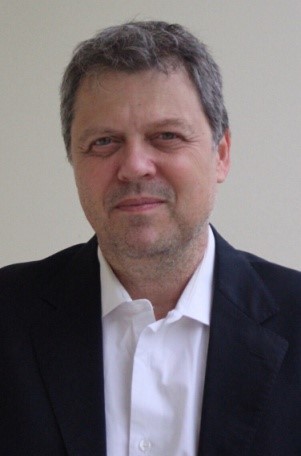

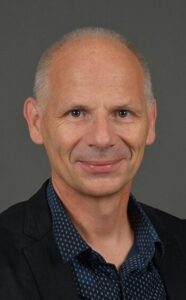

![Vers l'article [INFRA+] CENHTOR, une plateforme numérique au service de l’ouverture et de la visibilité des projets de recherche en SHS](https://factuel.univ-lorraine.fr/wp-content/uploads/2025/09/Cenhtor_illustration_surEcran-300x300.jpeg)


![Vers l'article [INFRA+] Les plateformes INFRA+ en soutien aux programmes interdisciplinaires : exemple de B4B](https://factuel.univ-lorraine.fr/wp-content/uploads/2025/09/article-plateforme_INFRA_B4B_11092025-300x300.jpg)
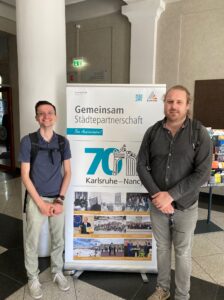
![Vers l'article [RETOUR SUR] la 7ème édition du séminaire INFRA+](https://factuel.univ-lorraine.fr/wp-content/uploads/2025/07/infra_4-300x300.jpg)
![Vers l'article [Retour sur] Journée de lancement du projet IMPACT I-META](https://factuel.univ-lorraine.fr/wp-content/uploads/2025/07/kick-off-i-meta2-300x225.jpg)
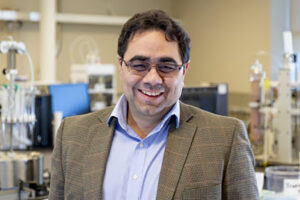
![Vers l'article [INFRA+] GP4Wood : la biomasse au service de la transition écologique](https://factuel.univ-lorraine.fr/wp-content/uploads/2025/06/photo_gp4wood_s-300x225.png)
